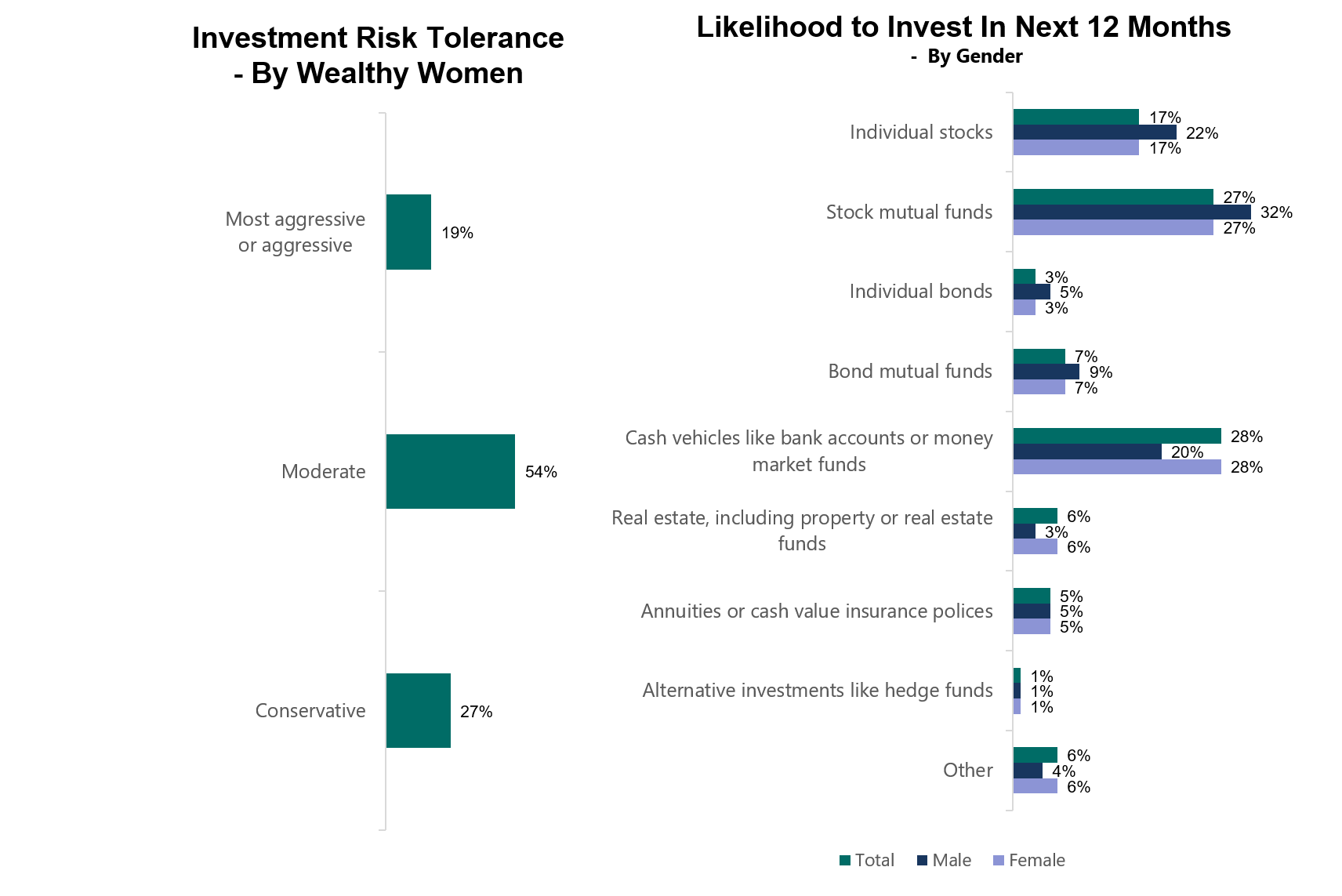Women have often been stereotyped at worriers. Women are assumed to be more conservative with risks and sometimes assumed to be less knowledgeable about finances and investing. Women are the nurturers and expected to naturally look out for their family. Not that long ago it was unheard of to have women be part of financial discussions, but now we have female financial advisors, and advisors who make certain that women are an equal part of the discussion as men. Does that mean women are going to have the same risk tolerance? Just like in nearly every other aspect of life, women are not just like men.
Women are more likely to work with a financial professional that men. Men often think they can manage assets on their own, while women look for the assistance of a financial advisor. Sixty-one percent of women have a primary financial advisor, while only 57 percent of men have one, according to Spectrem research with wealthy investors. That percentage jumps up to 74 percent of women who have a net worth between $5 million - $25 million having a primary financial advisor. Women also trust more of their assets to an advisor, with 45 percent of their assets being with their primary advisor, while men place just 38 percent of their assets with their primary advisor. Just what type of advisor are they likely to use? Does that change by gender as well?
The most common types of financial advisor are the same regardless of gender, however women are slightly more likely to use a full service broker or independent financial planner than men. Men are more likely to use an insurance agent or investment manager than women are. There is a nearly equal use of Accountants, attorneys, RIAs, and discount brokers across both genders. The relationship women have with their financial advisor is likely to be newer than those relationships with male investors. Twenty-two percent of women have been with their primary financial advisor for less than three years. This is in contrast to the 14 percent of male investors who have only been with their advisor for less than three years. Spectrem Group research reveals that women differ in who they work with for their financial lives, but do women have a different approach to the actual investing as well?
Women are more conservative. Over a quarter (27 percent) of women consider themselves to be conservative investors, while only 17 percent of men feel that way. That more conservative approach to investing is also evident in the investments women are likely to invest in. Women are more likely than men to invest in cash vehicles, while they are less likely to be investing in individual stocks or stock mutual funds.

The needs of a female investor are unique and should be part of the conversation in every interaction with a financial advisor. Even for couples who have very different risk tolerances and investment ideas, it is critical that both voices are heard in the development of a comprehensive investment portfolio. Female investors need to speak up and ensure that risks that go beyond their tolerance are not being selected.


